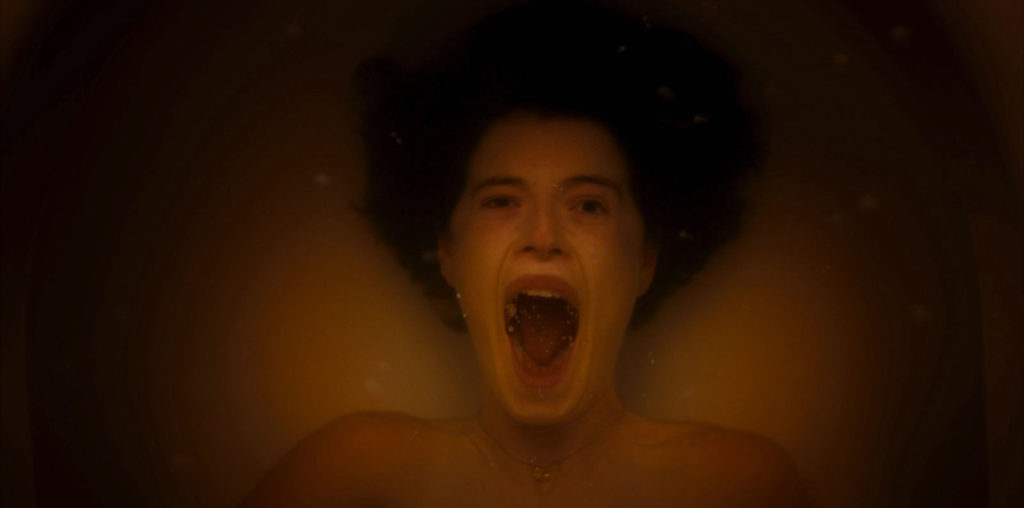
Death to Speedy the Alka-Seltzer Boy, wanting to at least qualify for a heaven that may or may not exist, and obsession with evil and misfortune are among the conversational topics that arise in Brett Ingram’s documentary “Monster Road.” Ingram’s film introduces you to animator Bruce Bickford, a unique individual who may not have enjoyed conventional commercial success but has achieved cult-status recognition for the pieces he created for Frank Zappa in the 70s. Winner of the Grand Jury Sparky award for Best Documentary Feature at the 2004 Slamdance Film Festival, “Monster Road” takes the viewer into the life and mind of its subject.
The documentary is a presentation of Bickford’s claymation and who he is as a person, in all his eccentricities. He was the third of four sons to a homemaker mother and an engineer-architect father. A tall, slender fifty-seven year old man, Bickford’s hair is gray and down to his shoulders. His eyes sit in sockets deep in his face. There’s a subtle intensity in his gaze that communicates passion—passion for his clay creations if not life as well. An agile tree climber and amateur gymnast, Bickford strikes you as someone who is much younger than fifty-seven. A loving son, he regularly visits his father who suffers from Alzheimer’s.
Director Ingram forms and develops the viewer’s understanding and knowledge of Bruce through the animator’s own words as well as through his work. Recurring themes and animation techniques include the idea of domination, destruction, transformation, and recreation. Some of his pieces suggest that he has a preoccupation with pain and torture. Bruce explains that he went through a phase in his childhood when he couldn’t stand to be around people. He just hated people. The artist in him reacted by expressing that hostility in drawings and eventually animation. Bruce even remarks that all fighting should be done artistically instead of in real life. The anger is dealt with and nobody gets (physically) hurt.
Another significant and consistently exhibited aspect of Bruce’s work deals with the small guy’s triumph over the big bully. Bickford relates that the mean kids know how to target the weak ones, who also usually turn out to be the smaller ones. He identifies with the Peter Pans of the playground; the ones who don’t tower over anything but can out-smart and out-maneuver any antagonizing force.
Some people say that all artists are weird and moody. Bruce is an artist. As “Monster Road” depicts him, he’s rightfully weird but he’s not moody. He thinks about and sees the world differently—just like any artist.
